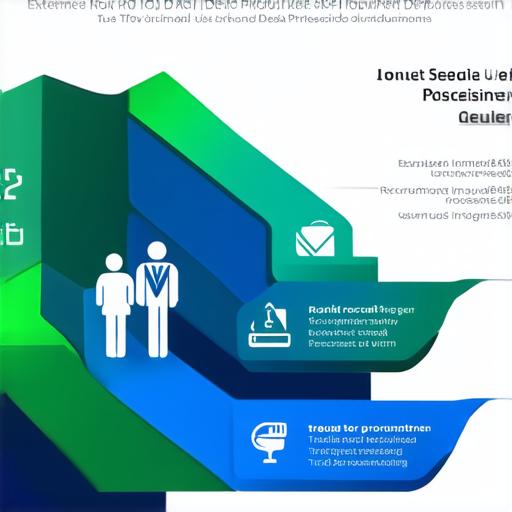What is Recruitment Process Outsourcing (RPO)?
Recruitment process outsourcing, or RPO, is the practice of outsourcing all or part of a company’s recruitment and hiring processes to a third-party provider. This can include everything from sourcing candidates, conducting interviews, and administering assessments, to onboarding new employees and providing ongoing support.
RPO providers typically have specialized expertise in recruiting and HR, as well as access to a wide network of job boards, social media platforms, and other resources that can help companies find top talent quickly and efficiently.

The main benefits of RPO include:
Cost savings: By outsourcing recruitment processes, companies can save on the cost of hiring in-house staff, as well as reduce their overhead costs associated with recruiting and HR.
Time savings: Recruitment process outsourcing can free up time for HR professionals to focus on other important tasks, such as employee training and development.
Improved quality of candidates: RPO providers typically have extensive experience in identifying top talent and can help companies attract the best candidates through targeted sourcing, screening, and selection processes.
Increased efficiency: RPO providers can streamline recruitment processes and provide 24/7 support to help companies fill open positions quickly and efficiently.
How does Recruitment Process Outsourcing (RPO) work?
Needs assessment: The RPO provider works with the company to understand its recruitment needs, including the number of open positions, the required skill sets, and the company’s goals and objectives for the hiring process.
Sourcing and screening: The RPO provider uses a variety of methods to source candidates, including job boards, social media platforms, employee referrals, and other resources. Candidates are then screened based on their qualifications and experience to determine if they meet the company’s needs.
Interviews and assessments: The RPO provider conducts interviews with the shortlisted candidates and administers assessments to evaluate their skills and qualifications.
Offer and onboarding: Once a candidate has been identified, the RPO provider presents the offer to the candidate and manages the onboarding process, including paperwork, benefits enrollment, and other administrative tasks.
Ongoing support: The RPO provider provides ongoing support to both the company and the new employee, including performance management, training, and development.
Why is Recruitment Process Outsourcing (RPO) a worthwhile investment for businesses of all sizes?
Recruitment process outsourcing can be a valuable investment for businesses of all sizes, as it can help them save time and money while improving the quality of their candidate pools. Here are some key reasons why:
- Cost savings: By outsourcing recruitment processes to an RPO provider, companies can reduce their costs associated with hiring in-house staff, including salaries, benefits, and training expenses.
- Time savings: Recruitment process outsourcing can free up time for HR professionals to focus on other important tasks, such as employee training and development. This can help companies improve productivity and efficiency across the organization.
- Improved quality of candidates: RPO providers typically have extensive experience in identifying top talent and can help companies attract the best candidates through targeted sourcing, screening, and selection processes. This can help companies reduce turnover and improve employee retention rates.
- Increased flexibility: Recruitment process outsourcing can provide businesses with greater flexibility in their hiring processes, as they can scale up or down depending on their needs. This can be especially useful for companies that experience seasonal fluctuations in demand.
- Access to specialized expertise: RPO providers typically have specialized expertise in recruiting and HR, which can help companies improve the quality of their candidate pools and reduce the time and resources required for recruitment processes.
Real-life examples of Recruitment Process Outsourcing (RPO) success stories
ABC Company: A mid-sized manufacturing company was struggling to find qualified candidates for open positions in their production department. They turned to an RPO provider, who helped them identify top talent through targeted sourcing and screening processes. As a result, the company was able to fill open positions quickly and efficiently, and saw a significant reduction in turnover rates.
XYZ Corporation: A large healthcare organization was looking to expand its operations in a new location. They turned to an RPO provider, who helped them identify and source candidates for key positions in their new facility. The RPO provider also provided ongoing support to the company, including performance management and training, which helped ensure that the new hires were integrated into the organization quickly and effectively.
123 Inc.: A startup tech company was looking to scale up their operations quickly, but didn’t have the resources or expertise to recruit and hire top talent in-house. They turned to an RPO provider, who helped them identify and source candidates for key positions in their organization. The RPO provider also provided ongoing support to the company, including performance management and training, which helped ensure that the new hires were integrated into the organization quickly and effectively.
FAQs about Recruitment Process Outsourcing (RPO)
1. Q: What is the difference between RPO and staffing?
Recruitment process outsourcing typically involves outsourcing all or part of a company’s recruitment and hiring processes to a third-party provider, while staffing typically involves outsourcing temporary or short-term employment needs to a staffing agency.
2. Q: How do I know if RPO is right for my business?
Recruitment process outsourcing can be a valuable investment for businesses of all sizes, as it can help them save time and money while improving the quality of their candidate pools. To determine if RPO is right for your business, consider factors such as your recruitment needs, your budget, and your goals and objectives for the hiring process.
3. Q: Can I customize my RPO solution?
Yes, most RPO providers offer customizable solutions that can be tailored to meet the specific needs of your business. This may include everything from sourcing and screening candidates to onboarding and training new employees.
4. Q: How do I choose an RPO provider?
When choosing an RPO provider, consider factors such as their experience and expertise in recruiting and HR, their track record of success, and their ability to provide the level of customization you need. You should also consider their communication style and their willingness to work collaboratively with your team.
5. Q: What are the risks associated with RPO?
Like any business decision, there are risks associated with RPO, including the risk of working with a provider that doesn’t deliver on their promises, the risk of losing control over the hiring process, and the risk of not seeing the level of cost savings you were hoping for. To mitigate these risks, be sure to do your due diligence when selecting an RPO provider, and communicate clearly and regularly with them throughout the process.
